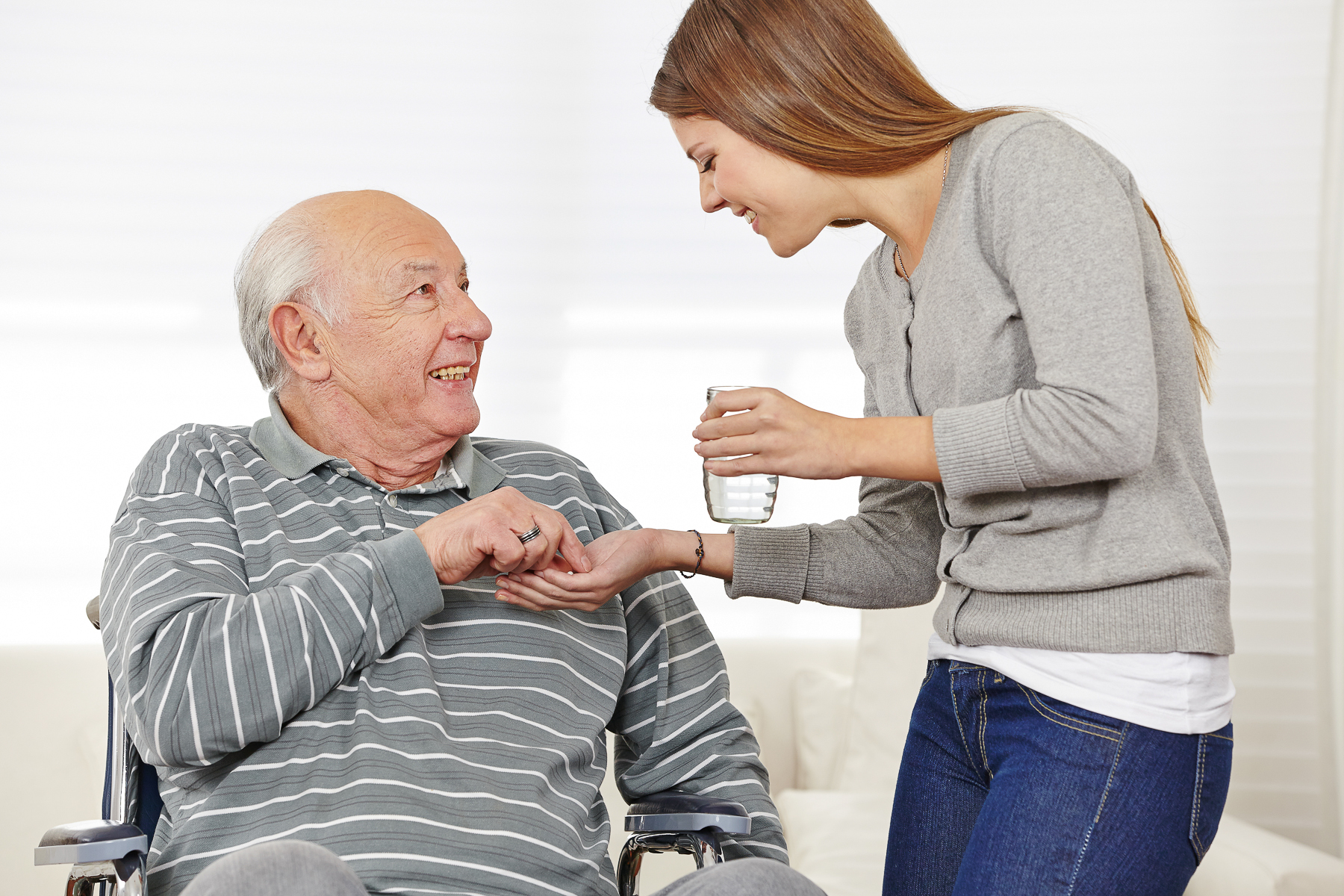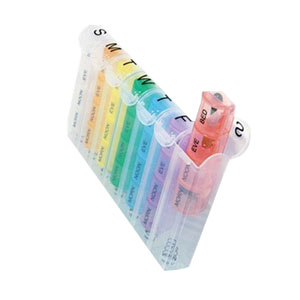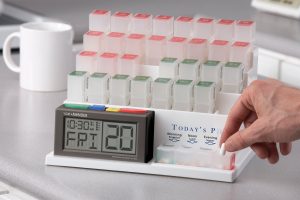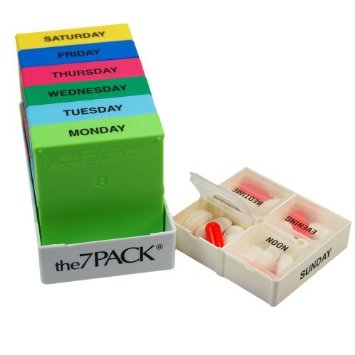Being harmed by medication is known as an adverse drug event (ADE), something that is unfortunately too common in seniors. Fortunately, by arming yourself with a proper education, sufficient awareness, and a few preventative measures, you can protect your loved ones from a fatal ADE. Read on to learn more, or jump straight to the NO-ADE prevention method.
As patients get older, it’s not uncommon to start facing more and more health problems, both physically and mentally, and the chances are they’ll have one, if not several, prescriptions of medicine and medication to help relieve their aches and pains.
However, medication of any variation or for any purpose is only effective if managed, applied and treated in the correct way. Nevertheless, if you think there’s a problem with your medication or the medication of an elderly loved one, it’s so important you take the time to check.
Perhaps something just doesn’t seem right. Perhaps there are certain side effects that are worrying you, or something isn’t working like you thought it would, you need to investigate.
The following are some of the biggest and most common mistakes seniors make when it comes to medications and the best medication aids you can use to prevent a majority of these mistakes.
1. Taking Too Much
Medication is a sensitive thing, and any mistakes in dosages can be deadly. When seniors become confused and aren’t sure if they took what they were supposed to or not, or how many pills they were supposed to take, they run a real risk of overdosing.
This is perhaps the most common problem with senior medication. According to NCBI, drug overdosage is a significant problem in the elderly population – and a majority of these cases are unintentional. To avoid errors, all patients who take medication regularly – especially seniors who are more prone to confusion – should use pill organizers to ensure that they are always taking their exact dosages.
Another significant concern is that many seniors take painkillers to reduce symptoms of arthritis and other age-related pains and always run the risk of taking more to try and stop the pain. Attempting to gradually increase their drug intake as their body becomes immune puts geriatrics with chronic pain in immediate danger. While the current opioid epidemic is well-known, it’s important to note that even basic painkillers can be fatal; in the US alone, there are over 970 fatalities a year caused by Tylenol overdoses.
2. Not Checking with Doctors
There are plenty of drugs and medications that are available over-the-counter for anybody to buy, and you might have been purchasing the same drugs over and over for years. However, without checking with a medical professional, you might be doing your body more harm than good.
Before taking any kind of drug, make sure you’re speaking to your medical professional or doctor beforehand and getting them to tell you everything. While you can get information off the internet, it’s important to remember that everyone’s different and your circumstances may need extra attention.
3. Forgetting to Take a Dose
The thing with medication is that you’re supposed to continuously take the amount of medication you’ve been prescribed over the length of time you’ve been prescribed for in order to for it to work to its maximum effectiveness.
However, even if you forget to take one dose, this can cause the medication not to work as intended, and even taking the dose you missed might not be able to get you back on track. This can also cause dangerous side effects and other issues, so it’s important to keep up to date on doses at all times. To ensure that your loved one never misses a does, you may want to consider purchasing one of the many medication reminder alarms available online. You can even find medication reminders that are connected to the actual pill box so everything is organized in one place, eliminating many errors by simplifying meds time.
4. Mixing Up Medication
It’s a scientific fact that our brains work slower the older we get, and it’s not uncommon for seniors to mix up their medication. Say they’re supposed to take one pill in the morning and one at night, they might mix them up, or forget the routine.
This means the medication could be causing internal damage, or not working like it’s supposed to, so it’s important to make sure this isn’t a problem and there’s a system in place to prevent this. This is another area where staying organized by using pill boxes can help prevent a tragedy.
5. Negative Drug-Drug Interactions
Some medications might come from different sources, for example, one a hospital, one from a doctor, and one from over-the-counter, but not all medicines are supposed to be mixed.
Any kind of new medication that a senior is taking needs to be checked and cleared by a doctor to make sure mixing the drugs is not going to cause any problems.
6. Not Having a System
We’ve mentioned having a system for taking medication accurately in other points here but it also deserves its own section. When caring for a senior, it’s so important to have a system and routine for their medication intake.
This includes the times you’re taking them, organizing them into a pill dispenser, and making sure you’re taking the right ones and don’t get them mixed up. Not having a system is the best way to cause a mistake.
7. Not Getting Rid of Old Medication
This should go without saying, but it’s so important to get rid of medication that’s out of date because, in some instances, it could be toxic. Always check the labels every single day to ensure you don’t miss any important information like this.
Some medication you might not use for years, and if you end up mixing it up with another medication and it’s out of date, this could cause you serious health problems. Always clean out your cabinet regularly to avoid this being a problem.
8. Problems with Food
Perhaps surprisingly to many, some foods can’t be eaten with certain medicines which is why it’s so important to check the labels and warnings of each medication being used, and you check with your doctor to make sure there’s nothing going to clash or information you should be aware of.
For example, grapefruit juice alone is known to have negative effects when mixed with any of the 85 listed medications because of the way it’s processed by the liver. This is why it’s so important to be aware of the dangers.
9. Consuming the Medication Incorrectly
The FDA estimates that around 16% of all medication is consumed and taken incorrectly, which means that it’s not having the positive, desired effect, or any effect whatsoever. For example, you may be told to take your pills orally, which you might just eat, but are instead supposed to let dissolve under your tongue.
10. Not Getting Professional Help
If you do have any questions or queries, don’t look it up online, but instead get professional help from a doctor who knows you and can give the best advice. Don’t think you know best.
As you can see, there are lots of things for you to consider when it comes to seniors taking their medication, and lots of common mistakes they usually make. Be mindful of what’s going on and ask questions in order to ensure everything goes as smoothly as possible.
The NO-ADE Prevention Method
Happily, there are a few simple but important things you can do to help prevent all of these mistakes and any associated ADEs in the elderly, and the NO-ADE acronym can help you remember them all.
![NO-ADE for Prevention of Adverse Drug Events [Infographic]](https://www.avacaremedical.com/blog/wp-content/uploads/2019/02/NO-ADE-for-Prevention-of-Adverse-Drug-Events-Infographic.jpg)
The 5 Steps to Preventing Adverse Drug Events in the Elderly: NO-ADE
- Note. Keep a careful inventory of all medications taken by your loved one
- Oversee. Make sure they are taking medications according to directions
- Advise. Regularly remind your loved one to take their doses as directed
- Diagnostic. Follow through with any diagnostic tests recommended by your loved one’s doctor
- Educate. Keep your loved one educated about all medications they are taking
And of course, as mentioned above, be sure you’re using the best medication aids available to ensure safe drug intake at all times – even when you can’t be there.
Grace Carter is a health writer. She enjoys helping people to maximize their health and well-being and to live healthy lives.





